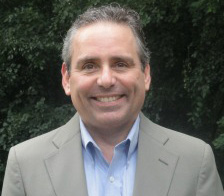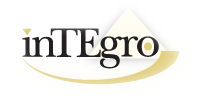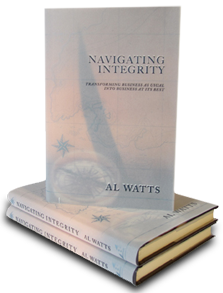I had the pleasure of lunch recently with the former VP of Sales for a $16 million technology company, published author and speaker.  Mark Faris freely shares another distinguishing credential: he is a convicted felon for mail / wire fraud and money laundering who did eleven months of hard time away from home and family. He has one more year of supervised release by the U.S. Probation Office and is still paying monthly restitution. Mark’s experience was clearly a significant defining moment of his life and career; his passionate purpose today is transforming individuals and organizations to be more honest, accountable and ethical by communicating the importance of morals, principles, and values. I was anxious to talk with him about his journey and perspective on business ethics.
Mark Faris freely shares another distinguishing credential: he is a convicted felon for mail / wire fraud and money laundering who did eleven months of hard time away from home and family. He has one more year of supervised release by the U.S. Probation Office and is still paying monthly restitution. Mark’s experience was clearly a significant defining moment of his life and career; his passionate purpose today is transforming individuals and organizations to be more honest, accountable and ethical by communicating the importance of morals, principles, and values. I was anxious to talk with him about his journey and perspective on business ethics.
Here are some take-aways from my conversation with Mark:
- Too many of us grow up and go to work with a sense of entitlement: entitlement to a big job, big house, big cars and safety nets – that we’re somehow owed, or deserve a comfortable, luxurious lifestyle. For those who attain that, some are desperate and will do anything to keep it so.
- For many leaders, it’s about them: “How can I get ahead / win / succeed / look good? How can I get more recognition, pay and perks? They’ve lost track of Robert Greenleaf’s admonition that “leaders are servant first” – to teach, guide and develop people so they can accomplish a worthwhile purpose together.
- Organizations, too, lose sight of their central purpose of meeting legitimate needs and serving customers first. I met with Mark shortly after hearing John Taft, CEO of RBC Wealth Management U.S., and reading his book “Stewardship.” A central theme of his book is that the Lehman Bothers, Wachovias and Goldman Sachs of the investment world dig themselves holes that we fall into precisely because they’ve lost sight of their central purpose as agents of customers and stewards of their wealth.
- Organizations and their leaders are keeping the wrong score cards, or they’re paying too much attention to scorecards versus playing the “game” as it’s supposed to be played. On the milder side, organizations lose out creating real sustainable value by succumbing to “shortermitis” propagated by Wall Street and analysts. On the more serious side, pressure to hit the numbers, shore up stock price and maximize bonuses lead to legal shortcuts or outright fraud.
- Fundamentally, it’s about morals, values and principles. Whether by family, school, faith, community or other means, internalizing a set of values and principles rooted by fairness, service, civility and honesty that becomes our moral compass is essential. It’s not enough to just have a set of values or principles. Some values are better than others; after all, even pirates and murderous gangs have codes that they live and die by. It’s not enough to merely have virtuous values or state them out loud. All of the organizations in the news for the wrong reasons the last few years had stated values that sounded right; their lobbies were literally paved and papered with good intentions. People watch our feet more than they listen to our speech; they learn from what senior leaders do, not what they say. Behavior is also shaped more by things like recognition and pay, who gets hired or promoted and what training is offered (or not) versus stated values in employee handbooks.
Mark grew up with a strong set of values, but acknowledged that competitive pressures combined with factors above nudged him over the line. From there things snowballed on a slippery slope to his and his company’s demise. When I asked him what would have made a difference preventing unethical and illegal practices, he said that defining company values clearly on the front end and paying much more attention to them would have had a huge positive impact.
We both agree with John Taft that our very future depends on the willingness and ability of business leaders to act with integrity as responsible stewards. Unfortunately we also both agree that as much talk as there is about integrity, principled leadership and stewardship, matters don’t seem to be improving and in fact are getting worse. We are confident that there are likely thousands of leaders and hundreds of organizations just in the U.S. today that find themselves on the slippery slope that Mark was on; our entire economy in fact seems to be on a slippery slope.
What to do? Here are some suggestions:
- If you haven’t already, as a leader and as an organization articulate your core values, principles, standards and code. Be certain that everyone knows what they are and what they mean.
- Find many ways to remind and reinforce organization members what your core values and expectations around those core values are – meetings, reports, training and other venues.
- Make sure that recognition and pay, hiring and promotion, performance appraisal, training and measurement send signals that are consistent with your stated values.
- Cultivate “truth-telling” cultures and listen. Before organizations find themselves in trouble ethically there are always unmined information sources and flags that get missed. Consider surveys, including inTEgro’s own Organizational Integrity Survey, as supplemental resources for determining where there may be disconnects between intentions and reality.
- Know that there will be dilemmas – where values conflict, there are no pat answers or where it’s really hard to do the right thing. Seek help and exercise discernment choosing the best course of action; provide coaching and counsel to others who face dilemmas.
- Examine your own and senior leaders’ motivations, behavior and communication; what messages do they send? Are you sure?
Mark Faris and I also talked about how the practices that keep leaders out of jail and their organizations out of ethical hot water are virtually the same that help assure organizational effectiveness and employee engagement. There is a growing body of evidence that customers and employees now consider an organization’s reputation and trustworthiness as or more important in their purchasing and employment decisions as they do other factors.
For more ideas about how to assure that integrity and stewardship serve as foundations for sound leadership and organizational culture, we recommend Navigating Integrity – Transforming Business As Usual Into Business At Its Best, and Stewardship – Lessons Learned from the Lost Culture of Wall Street, both on the Featured Books page of inTEgro’s web site (http://www.integro-inc.com/Resources/Books_and_Store) You can find Mark Faris’ inspirational autobiography The Wishing Well in inTEgro’s Book Store by clicking “More Books,” and learn more about Mark and his work at http://mpvethics.com/
Are you clear about your values, principles and standards – and what lines you will not cross? Is your organization?
Are you, or might your organization be, on a “slippery slope?” How will you regain your footing?
“If you have integrity, nothing else matters. If you don’t have integrity, nothing else matters.”
Alan Simpson
Men, like rivers become crooked by following the line of least resistance.
Edvard Raasted
Once we see that living up to our standards appear to be leading us toward self-destruction, the time has come to question our standards.
Nathaniel Brandon






